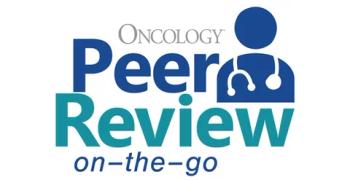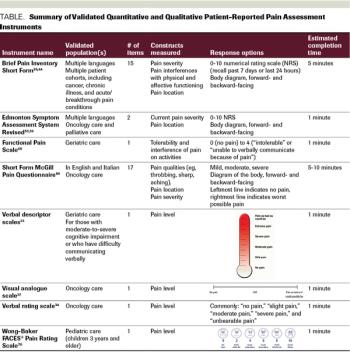
Linda E. Carlson, PhD, RPsych, discusses the recent updates from SIO/ASCO to the anxiety and depression guidelines for patients with cancer.

Your AI-Trained Oncology Knowledge Connection!


Linda E. Carlson, PhD, RPsych, discusses the recent updates from SIO/ASCO to the anxiety and depression guidelines for patients with cancer.

Therapies like yoga, music therapy, acupuncture, and natural health remedies have proven to be beneficial in mitigating anxiety and depression in adults with cancer, according to Linda E. Carlson, PhD, RPsych.

Jun J. Mao, MD, MSCE, spoke about updated guidelines from ASCO and SIO for pain management in patients with cancer.

Authors Dori Beeler, PhD; Shelley Wang, MD, MPH; and Viraj A. Master, MD, PhD, spoke with CancerNetwork® about a review article on cancer-related fatigue published in the journal ONCOLOGY®.

This review article written by Danielle Gentile, PhD, et al, reviews the management of cancer-related fatigue in integrative oncology.

Through traditional treatment, acupuncture, acupressure, and mind-body therapy, Heather Greenlee, ND, PhD, MPH, discusses how clinicians who treat patients with breast cancer can become more aware of integrative approaches for their practices.

Jun J. Mao, MD, MSCE, reviews how traditional, complementary, and integrative medicine can assist clinicians to better treat patients with cancer all over the world.

In an interview with CancerNetwork®, Eran Ben-Ayre, MD, spoke about guidelines for clinicians treating patients by way of telehealth during the pandemic, and how they can be adapted for future practices.

Experts explored existing data to create a universal definition of integrative oncology, in tandem with feedback from Society of Integrative Oncology, to better explains what the term means.

ABSTRACT Pain is a primary concern among patients with cancer and cancer survivors. Integrative interventions such as acupuncture, massage, and music therapy are effective nonpharmacologic approaches for cancer pain with low cost and minimal adverse events. Patient-reported outcomes (PROs) that have been validated in many clinical and research settings can be used to evaluate pain intensity, associated symptom burden, and quality of life. Clearly defined, reliable PROs can improve patient satisfaction and symptom control. As integrative oncology continues to evolve and expand, cancer-related pain PROs must be standardized to accurately guide clinicians and researchers. Well-validated pain PROs, such as the Brief Pain Inventory, are among the most commonly used for pain intensity assessment. Multiple symptom assessment tools such as the MD Anderson Symptom Inventory, the Memorial Symptom Assessment Scale, the Edmonton Symptom Assessment System, and the Patient-Reported Outcomes–Common Terminology Criteria for Adverse Events measurement system can also capture pain-associated symptom burden. Electronic PROs provide flexibility in collecting and analyzing PRO data. Clinical trials using carefully selected PROs and rigorous statistical analysis plans are fundamental to conducting high-quality integrative oncology research and promoting utilization of effective integrative interventions to improve patient outcomes. In this review, we aim to summarize current, validated PROs specific to cancer-related pain to aid integrative oncology clinicians and researchers in patient care and in study design and implementation.